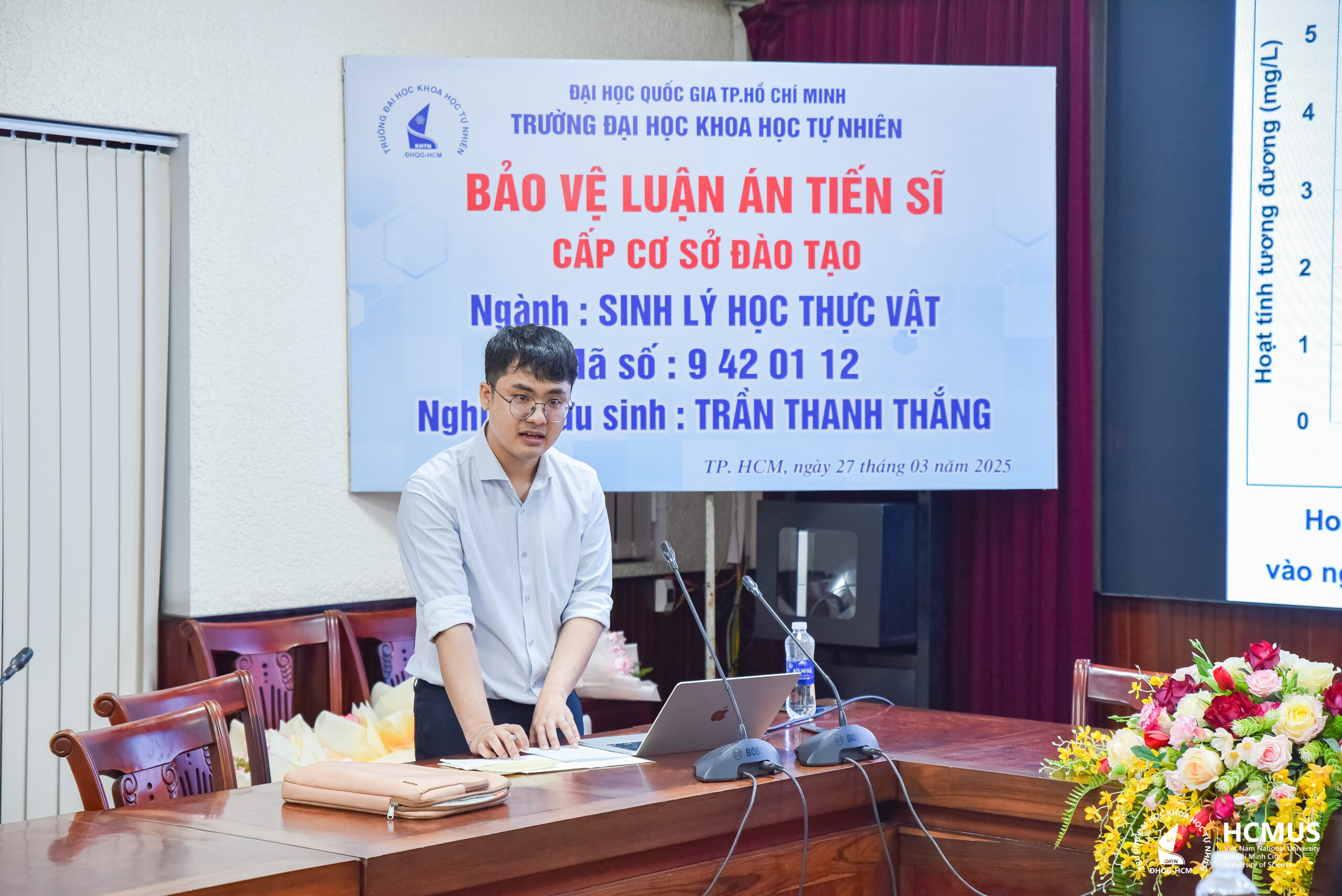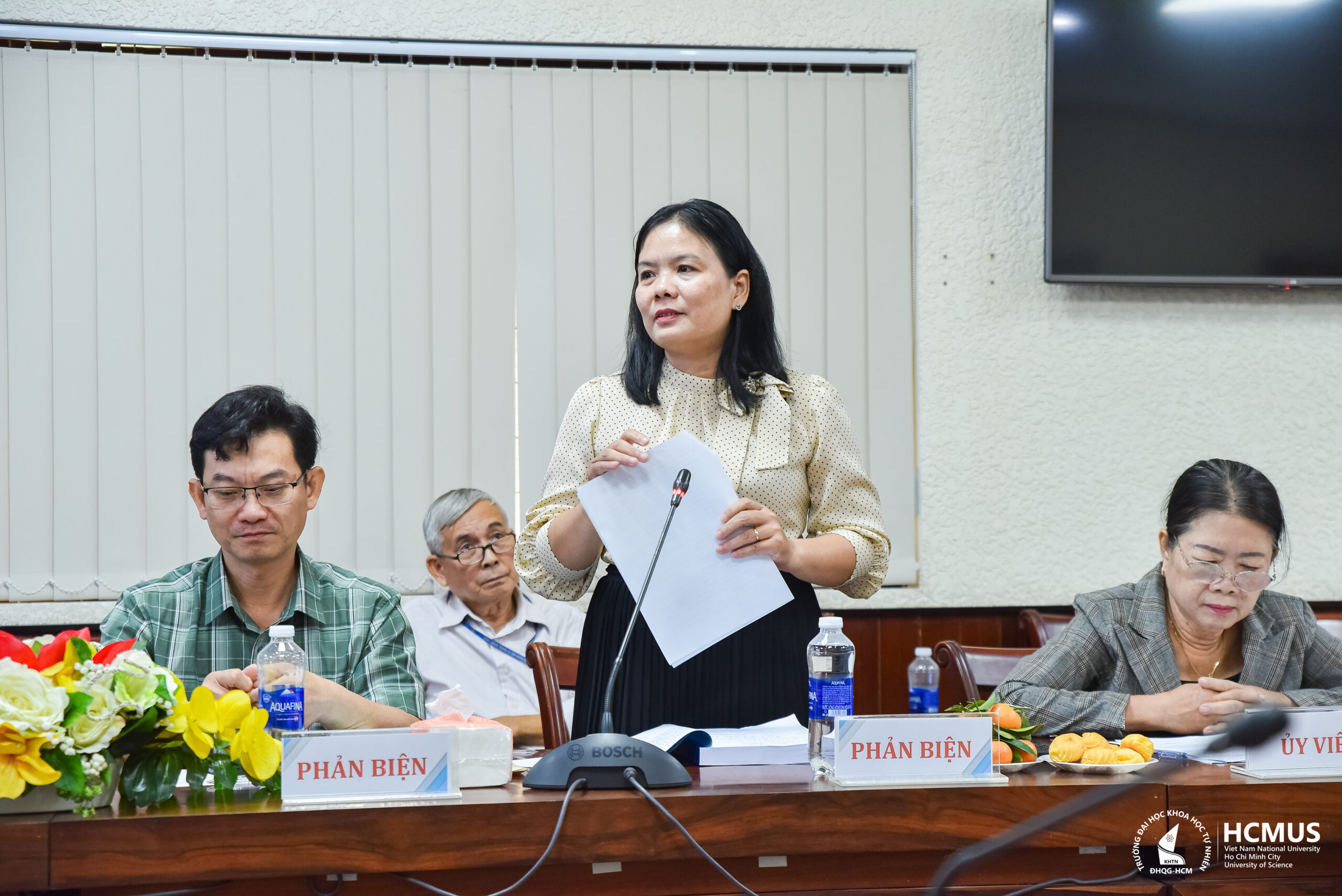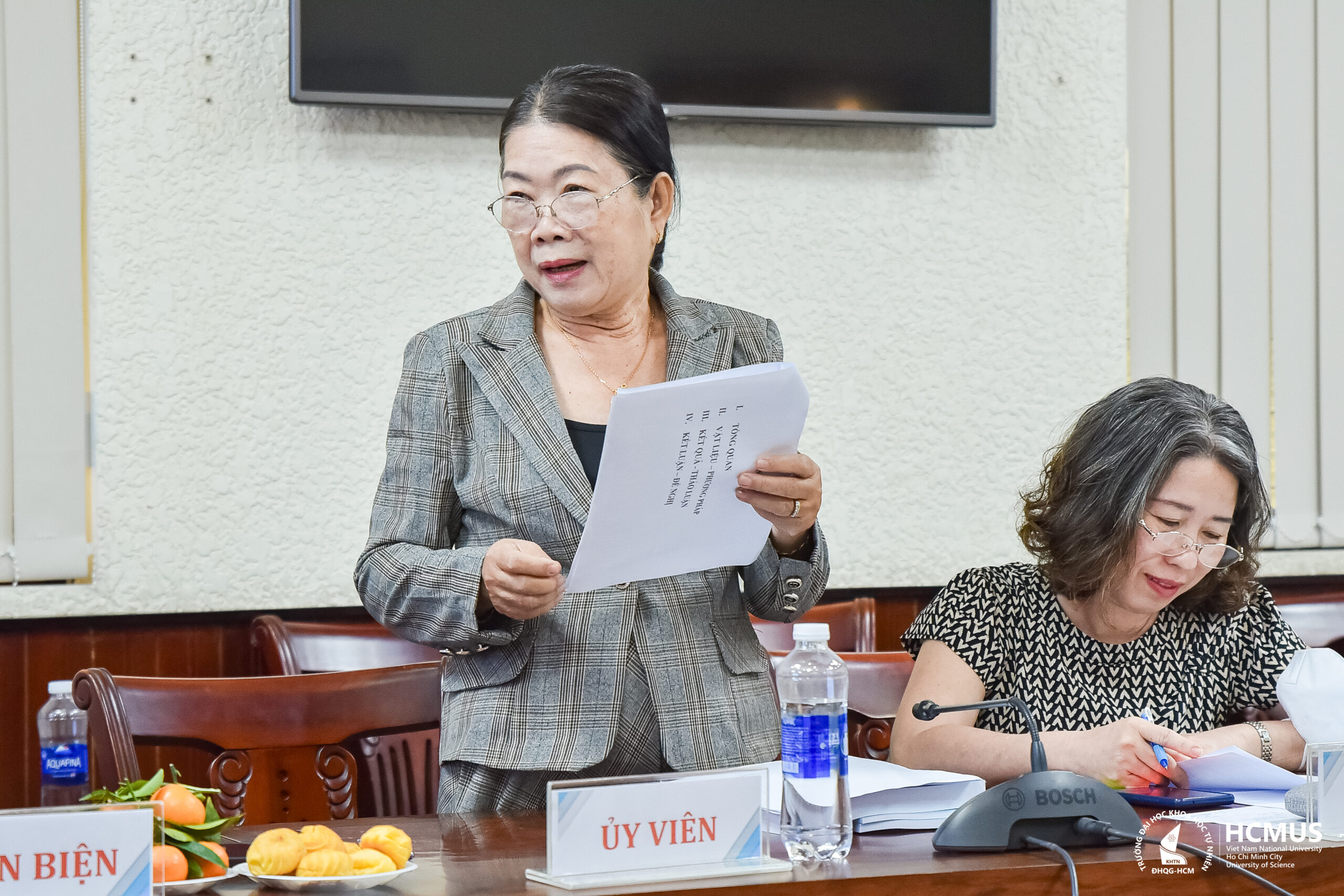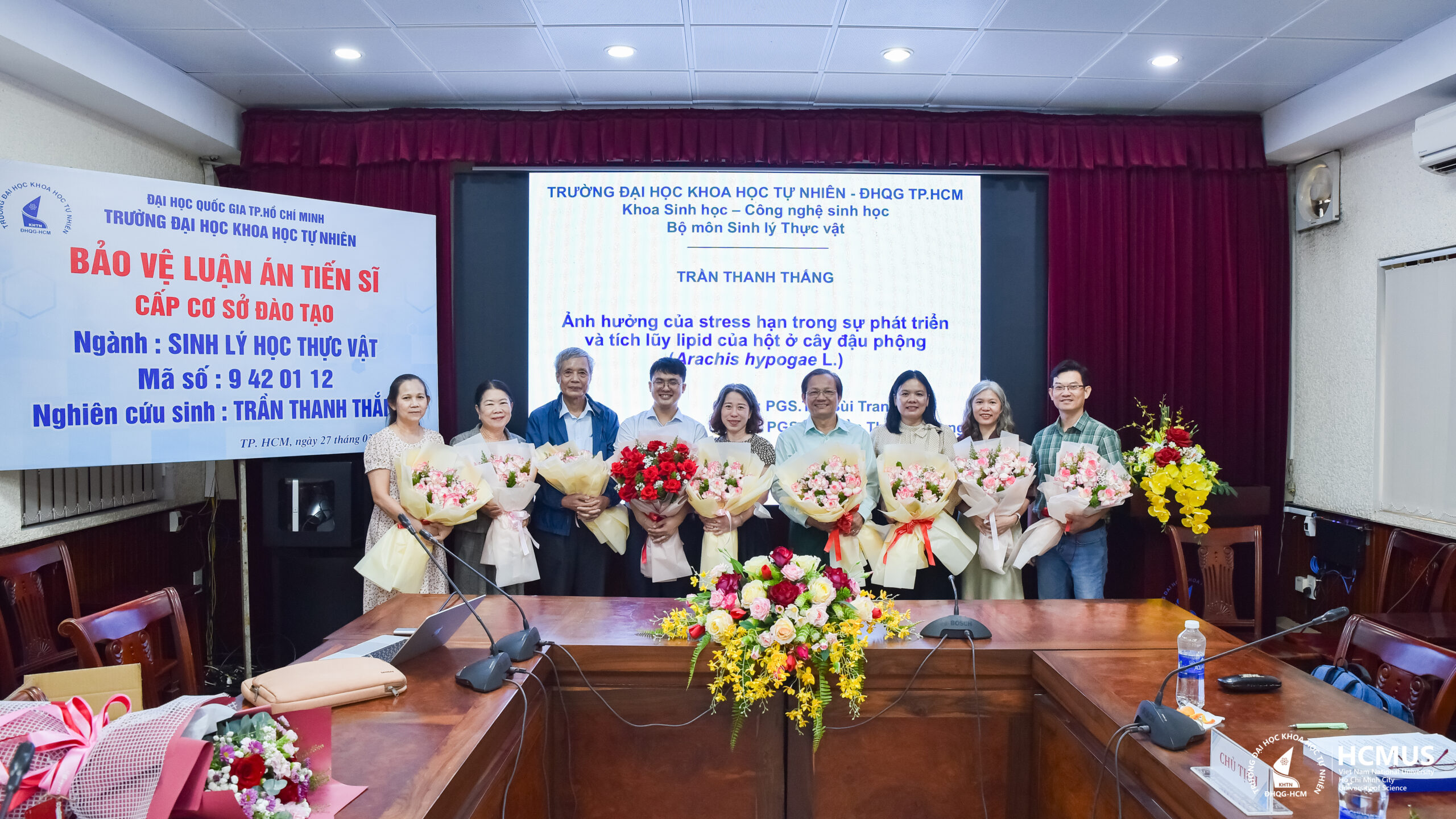Researcher Trần Thanh Thắng, under the supervision of Associate Professor Bùi Trang Việt and Associate Professor Trần Thanh Hương, defended the Doctoral thesis on the effects of drought stress on the development and lipid accumulation in peanut seeds. This research opened up new applications in agriculture and the oil processing industry. The findings were expected to be further explored and applied in practice through subsequent studies on the mechanisms of SNP action and intermittent drought treatment methods to improve peanut yield under arid conditions.
On 27 March, researcher Trần Thanh Thắng, specialising in Plant Physiology, successfully defended his Doctoral thesis at the institutional level with the topic “The Effects of Drought Stress on the Development and Lipid Accumulation in Peanut (Arachis hypogaea L.) Seeds” under the supervision of Associate Professor Bùi Trang Việt and Associate Professor Trần Thanh Hương. The defence took place in Room F.102 at VNUHCM-University of Science.
Thesis Content

Peanut (Arachis hypogaea L.) played a crucial role not only in the oil processing industry but also in global agriculture. However, approximately 70% of peanut cultivation areas were located in arid and semi-arid regions, leading to reduced yield and product quality.
Aiming to improve seed yield and quality under drought stress conditions, the thesis focused on examining the effects of drought stress on plant growth and lipid accumulation in peanut seeds. Additionally, seed priming methods were applied to optimise the plant’s drought tolerance.
Research Findings and Applications
- Drought stress affected plant development
The study demonstrated that drought stress reduced cation exchange capacity in roots, chlorophyll content, photosynthesis, and overall yield. However, under drought conditions, peanut seeds exhibited an increase in lipid, protein, and sugar content, offering promising applications for the oil processing industry.

- Intermittent drought treatment enhanced yield
Applying intermittent drought treatment from day 80 until harvest improved water use efficiency and seed weight while increasing lipid content compared to the control group. - Seed priming with SNP improved germination and plant growth
Seed priming with 20 mg/L SNP enhanced root cation exchange capacity, reduced electrolyte leakage in leaves, and improved photosynthesis and respiration. Although lipid content remained unchanged, the proportion of saturated and medium-chain fatty acids increased. - IAA and GA3 spraying boosted yield
Spraying 50 mg/L IAA combined with 150 mg/L GA3 before flowering increased the number of flowers, pods, seeds, seed weight, and lipid content in seeds. - Combined application
The integration of SNP seed priming and IAA + GA3 spraying enhanced peanut drought tolerance and seed yield under drought stress conditions.

Future Research Directions
The findings from this thesis opened up numerous opportunities for application in agricultural production, particularly in enhancing drought tolerance and improving peanut yield. Further investigation into the cellular and molecular mechanisms of SNP seed priming would be a crucial next step to optimise this method. Additionally, implementing intermittent drought treatment and seed priming in practical cultivation could serve as a key solution to improving peanut yield and quality in arid climates.
Conclusion
The successful defence of researcher Trần Thanh Thắng’s Doctoral thesis marked a significant advancement in plant physiology research and contributed to addressing drought-related challenges, thereby supporting increased agricultural productivity and quality. The research findings from this thesis would have a lasting impact on the development of the oil processing industry in Viet Nam and globally.

ℙ𝕄ℕ


![TKT_3670 [DOCTORAL THESIS DEFENCE] RESEARCH TRẦN THANH THẮNG DEFENDS THE DOCTORAL THESIS AT UNIVERSITY LEVEL ON THE TOPIC “THE EFFECTS OF DROUGHT STRESS ON THE DEVELOPMENT AND LIPID ACCUMULATION IN PEANUT (ARACHIS HYPOGAEA L.) SEEDS”](https://en.hcmus.edu.vn/wp-content/uploads/2025/03/TKT_3670-1160x774.jpg)
Leave a Reply